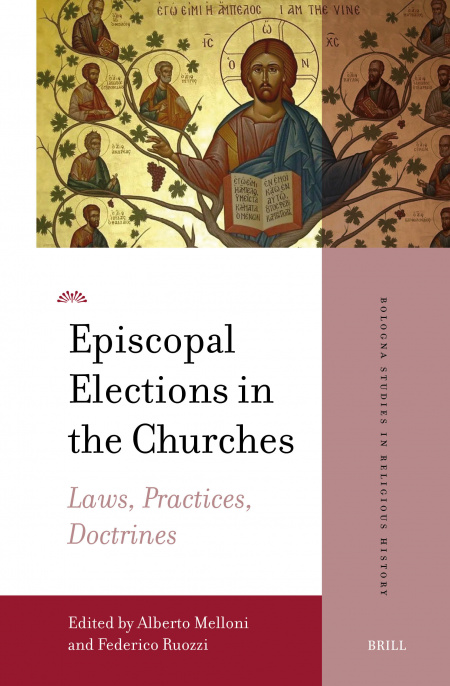
Episcopal Elections in the Churches
Laws, Practices, DoctrinesALBERTO MELLONI, FEDERICO RUOZZI
Bologna Studies in Religious History 2
Brill, Leiden, 2025
Paper € 121.90
ISBN: 978900452209
This work explores the procedures, norms, doctrines, and implications of episcopal elections in Christian churches. The evolution of episcopal elections reveals the political and social tensions and dynamics that influence the selection of bishops. The text analyses how such elections reflect the complexity of ecclesiastical structure from its origins in the New Testament to the present day. Election procedures never followed a fixed pattern, but were influenced by pre-existing traditions and contingent needs. The history of episcopal elections highlights the need for authority and consensus in the Christian community, exploring specific instances and historical developments that have shaped the current practice.
Contributions by Silvia Acerbi, Matteo Al Kalak, Federico Alpi, Gianmarco Braghi, Davide Dainese, Luca Ferracci, Enrico Galavotti, Jurgen Miethke, Kenneth Pennington, Georg Schöllgen, Ramon Téja, and Rita Lizzi Testa.
Alberto Melloni is professor of history of Christianity at the University of Modena and Reggio Emilia and secretary of Fondazione per le scienze religiose – FSCIRE (Bologna and Palermo); he is holder of the UNESCO Chair on Religious Pluralism and Peace at Sapienza University of Rome. He is the director of the work A History of the Desire for Christian Unity: Ecumenism in the Churches, 19th-21st Century (4 vols., Brill) and editor of the COGD series – Conciliorum Oecumenicorum Generaliumque Decreta (Brepols).
Federico Ruozzi is associate professor of history of Christianity at the University of Modena and Reggio Emilia, fellow at Fondazione per le scienze religiose (Bologna), and visiting professor at Oxford Brookes University (2023). He has published monographs, and many articles on Vatican II, on media and religion, and edited the critical edition of the texts of Lorenzo Milani (Meridiani Mondadori). He coordinates two research groups on AI for Humanities (ITSERR Project – Next Generation EU funds) and he is the secretary of the international journal Cristianesimo nella storia.
